Photo: Walter McBride/Getty Images
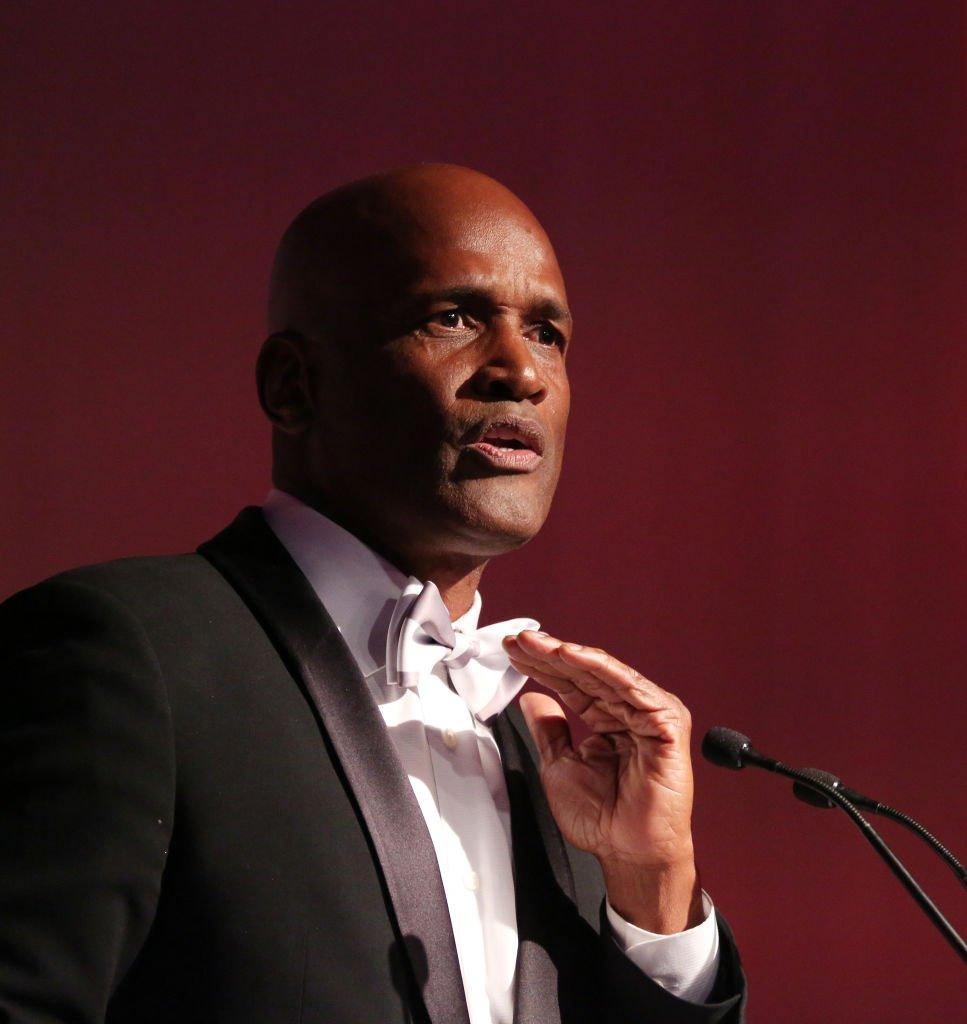
Kenny Leon
news
Kenny Leon Reprising Tupac Musical In Atlanta
Now that "Hamilton" has shown the way, will Tupac Shakur's "Holler If Ya Hear Me" hip-hop musical find the reception it deserves?
Some "California Love" will be opening in Atlanta on Sept. 12 as Tony Award-winning director Kenny Leon reprises his 2014 production of Tupac Shakur's "Holler If Ya Hear Me."
Although the hip-hop musical initially had only a brief Broadway run, many hope Lin-Manuel Miranda's GRAMMY- winning impact with "Hamilton" has opened the mainstream mind to appreciating hip-hop on a Broadway stage.
Tupac rates as one of American culture's great inspirations, but it was GRAMMY winner Harry Belafonte who Leon credits with the musical's return with an updated libretto. The director's whole perspective changed after Belafonte said, "You put on display a form of Afrocentrism on a Eurocentric platform. That within itself is a success."
As Leon's True Colors Theatre Company reprises this creative compilation of Tupac's words, music and insights, we could all benefit from taking the spirit of "I Ain't Mad At Cha" and applying Tupac's legacy to today's compelling challenges.
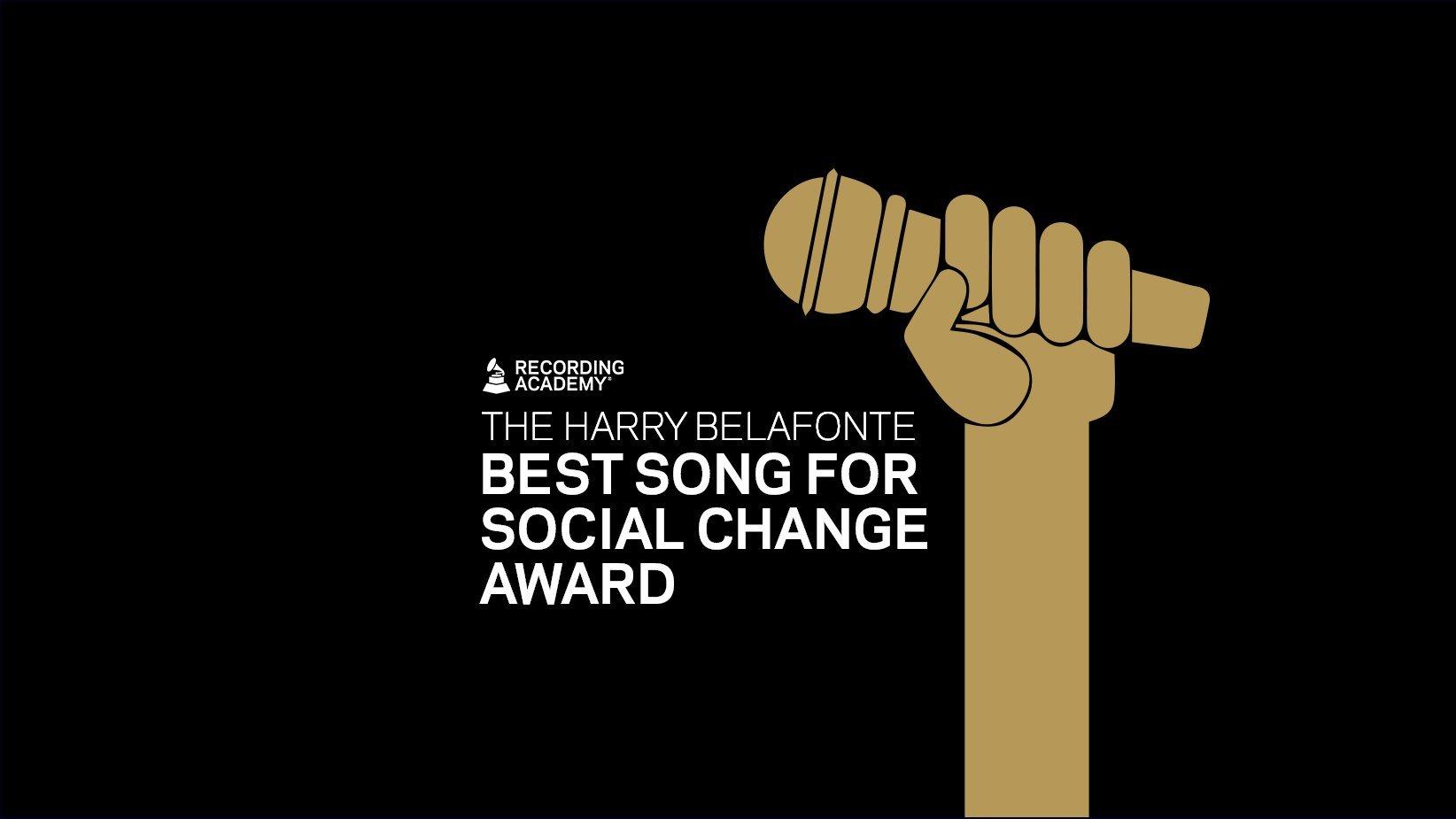
Graphic courtesy of the Recording Academy
news
Recording Academy Renames Best Song For Social Change Award In Honor Of Harry Belafonte
Submissions for the newly renamed Harry Belafonte Best Song For Social Change Award, which honors songwriters and message-driven music that address a timely social issue and promote peace-building, are open now through Friday, Aug. 30.
The Recording Academy has renamed and recategorized its annual Best Song For Social Change Special Merit Award to the Harry Belafonte Best Song For Social Change Award in honor of the late entertainment industry icon who was a powerful voice for social justice throughout his illustrious career. Originally established in 2022, the award will continue to honor songwriters of message-driven music that speaks to the social issues of our time and has demonstrated and inspired positive global impact.
Formerly a Special Merit Award, the Harry Belafonte Best Song For Social Change Award will now be categorized as a CEO's Merit Award; finalists and the recipients will be selected annually by a Committee composed of a community of peers dedicated to artistic expression, the craft of songwriting, and the power of songs to effect social change.
The submission period for the current cycle of the Harry Belafonte Best Song For Social Change Award is Wednesday, July 17 — Friday, Aug. 30. The inaugural Harry Belafonte Best Song For Social Change Award will be presented during the 2025 GRAMMY Awards season.
Read the Harry Belafonte Best Song For Social Change Award guidelines and make a submission here. Learn more about the award and see all of the past recipients.
Read More: Remembering Harry Belafonte’s Monumental Legacy: A Life In Music, A Passion For Activism
From his debut in the 1950s until his passing in 2023, Belafonte's artistic career progressed in parallel with his work as a trailblazing activist. An important friend of Rev. Dr. Martin Luther King Jr. and advisor, organizer and funder of the Civil Rights Movement, Belafonte helped organize the 1961 March on Washington for Jobs and Freedom and contributed to the 1961 Freedom Rides and the Mississippi Freedom Summer of 1964. Belafonte was outspoken throughout his career about American political elections; he performed at President John F. Kennedy's inaugural ball and was later named as a cultural advisor to the Peace Corps by Kennedy.
Creating the gold record standard in the music industry, Belafonte's 1956 RCA album CALYPSO made him the first artist in history to sell over 1 million albums. An advocate for global humanitarian causes including the Anti-Apartheid Movement and USA for Africa, Belafonte, in 1985, was the key organizer for the benefit single "We Are The World," which raised money for famine relief in Africa and ultimately won four GRAMMY Awards; it remains one of the best-selling physical singles of all time. As well, Belafonte became a UNICEF Goodwill Ambassador in 1987 and traveled internationally to raise awareness for the needs of children across sub-Saharan Africa.
A two-time GRAMMY winner and 11-time GRAMMY nominee, Belafonte received the Recording Academy's Lifetime Achievement Award in 2000. Three of Belafonte's recordings are inducted into the GRAMMY Hall of Fame: Belafonte At Carnegie Hall (inducted in 1999), "Banana Boat (Day-O)" (inducted in 2009), and Calypso (inducted in 2015).
Read More: Fight The Power: 11 Powerful Protest Songs Advocating For Racial Justice
"The greatness of Harry Belafonte's artistic legacy is matched by his profound impact of furthering social justice for all," Recording Academy CEO Harvey Mason jr. said in a statement. "We are honored to recognize his lasting influence with the Harry Belafonte Best Song for Social Change Award and to continue celebrating works that have inspired global communities towards social impact."
"The Belafonte estate is deeply honored and thrilled that the Recording Academy's Best Song For Social Change Award will now be named the Harry Belafonte Best Song For Social Change Award," Belafonte's living family members and Belafonte estate representatives Adrienne, Shari, Gina, and Pamela Belafonte said in a statement. "This recognition not only celebrates Harry Belafonte's enduring legacy in music and activism, but also inspires future generations to continue using their voices and art for justice and positive change."
The original Best Song For Social Change Special Merit Award debuted at the 2023 GRAMMYs. The inaugural award, presented by First Lady Jill Biden, went to "Baraye" by Iranian singer/songwriter Shervin Hajipour. At thw 2024 GRAMMYs, the award went to "Refugee" by K'naan, Steve McEwan, and Gerald Eaton. "The words [K'naan] wrote for the song resonate with me like not many songs do," McEwan said in an interview featured in the 2024 GRAMMYs program book.
Read More About Harry Belafonte
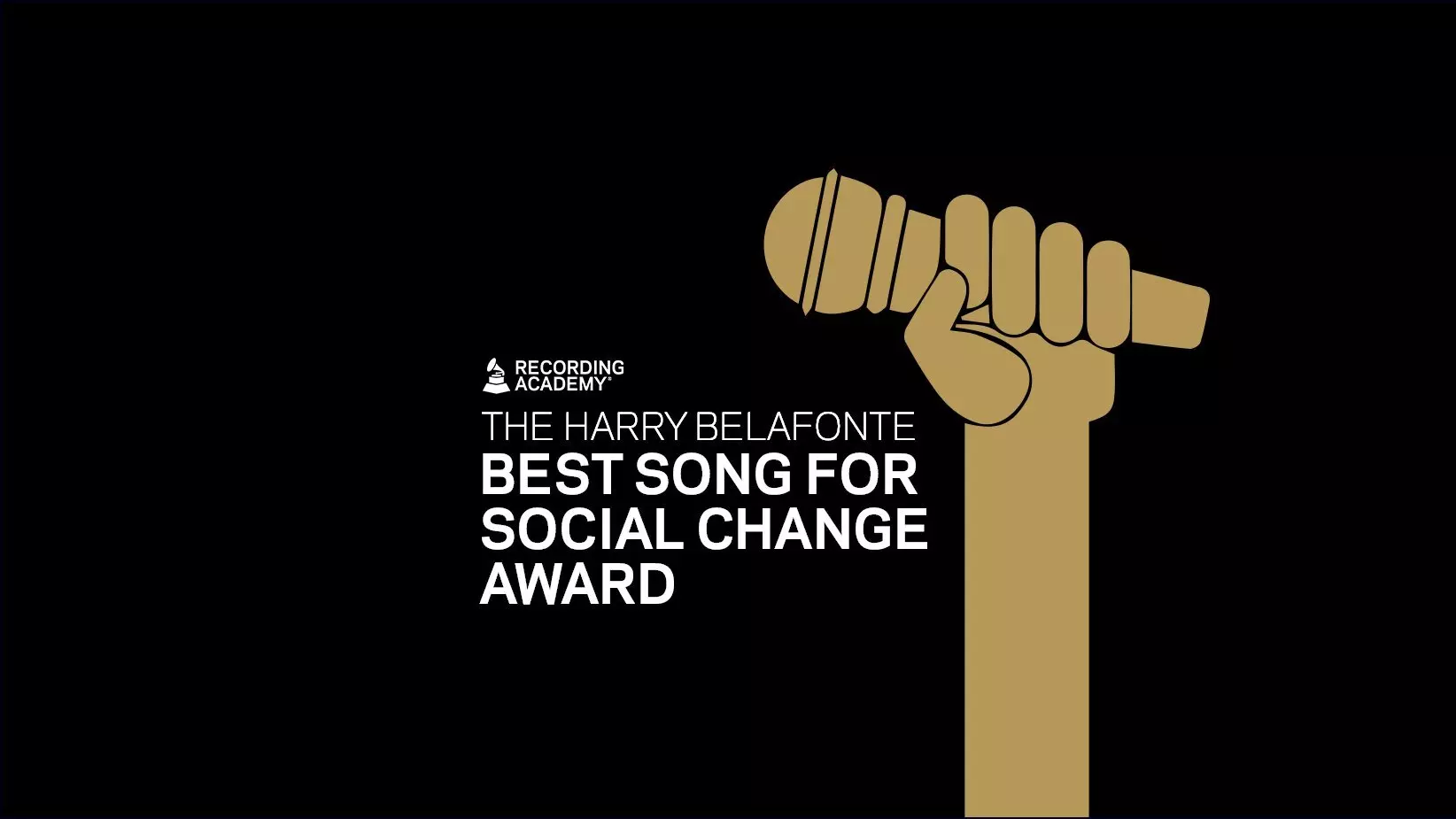
Recording Academy Renames Best Song For Social Change Award In Honor Of Harry Belafonte
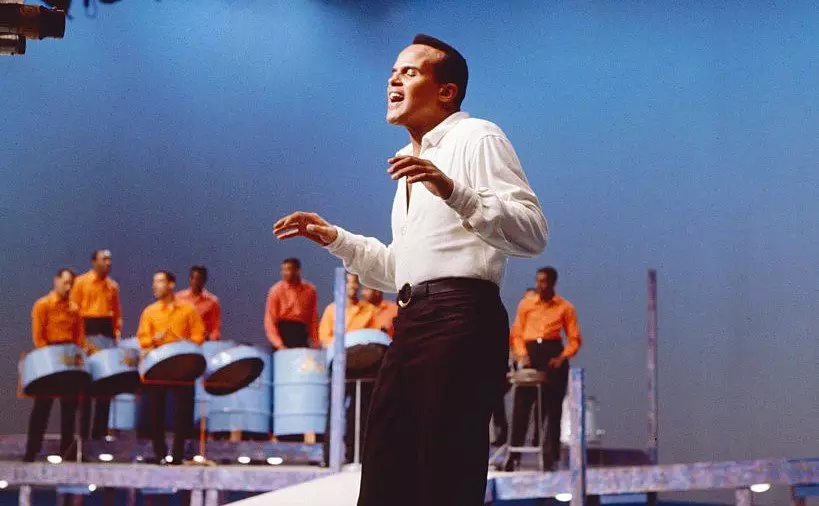
Remembering Harry Belafonte’s Monumental Legacy: A Life In Music, A Passion For Activism
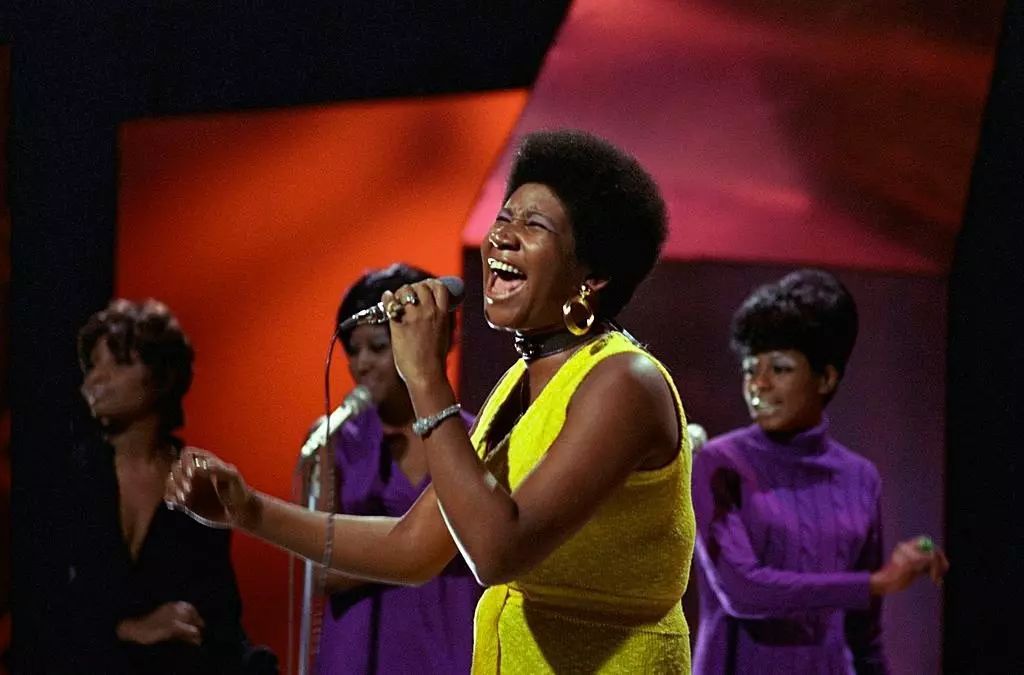
From Aretha Franklin To Public Enemy, Here's How Artists Have Amplified Social Justice Movements Through Music
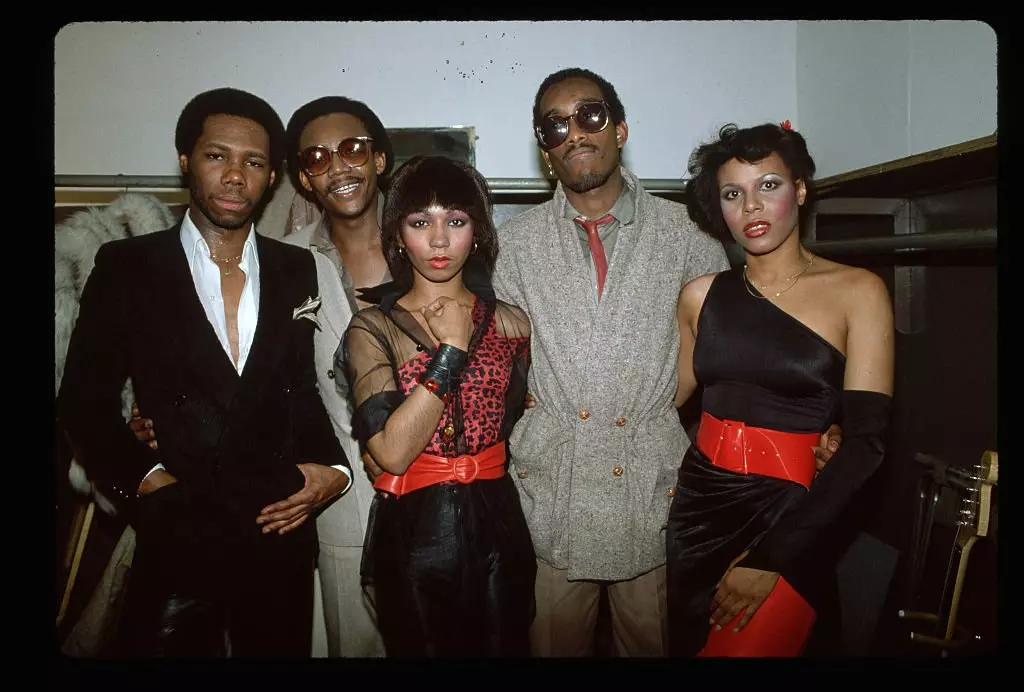
Library Of Congress Adds Recordings By Chic, Tony Bennett, Fleetwood Mac
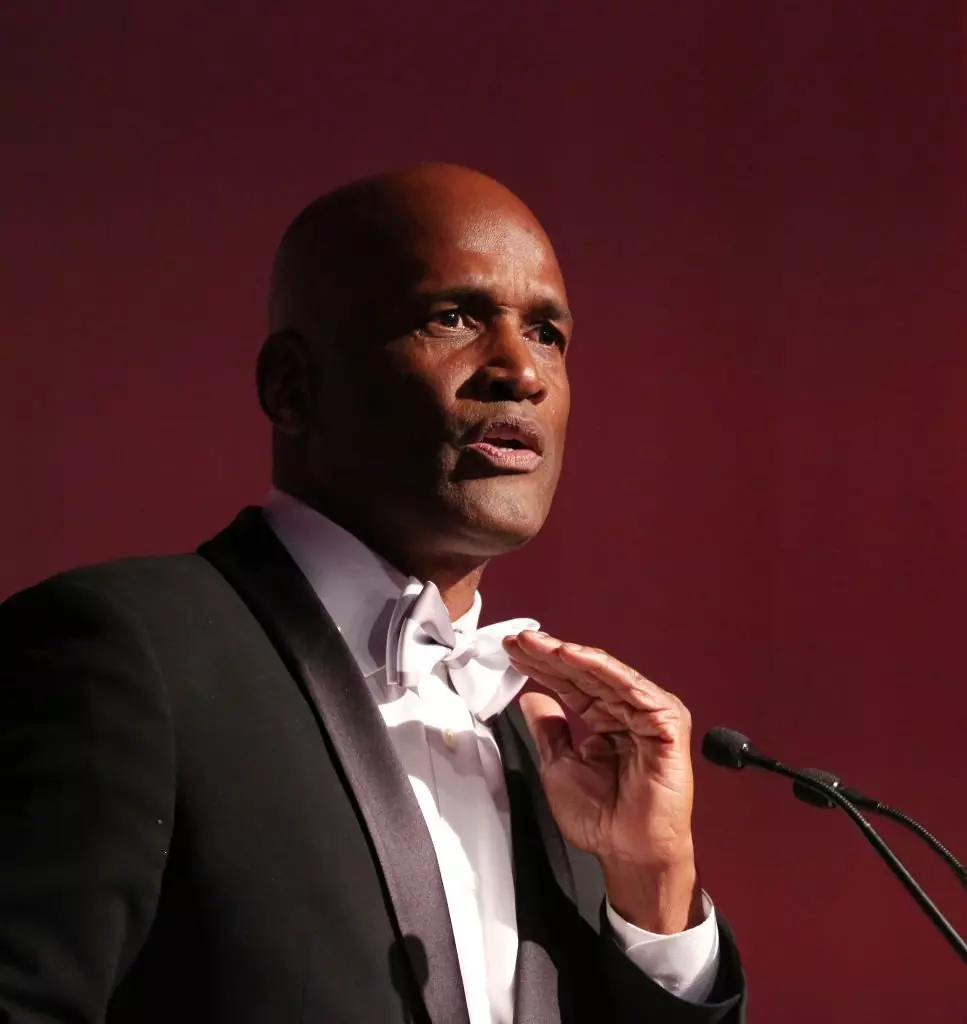
Kenny Leon Reprising Tupac Musical In Atlanta

Photo: Amy Lee
list
5 Rising L.A. Rappers To Know: Jayson Cash, 310babii & More
From San Diego to the Bay Area, Seattle and beyond, the West Coast bursts with talent. Los Angeles is at the heart of this expanse, and these five rappers are just a few who are showcasing the vibrant sounds of West Coast hip-hop.
GRAMMY winners Kendrick Lamar and Mustard have long repped their California roots. Earlier this summer, their powerhouse anthem "Not Like Us" brought West Coast rap back to its roots and shone a global spotlight on the scene.
Lamar and Mustard are at the forefront of a renaissance in West Coast rap. Their shared roots in Southern California cities — Mustard from Los Angeles and Kendrick from Compton — adds authenticity and resonance to their partnership. Their undeniable chemistry was on display in the video for "Not Like Us," which received a million views less than an hour after its release.
Mustard's signature beats and Lamar's profound lyricism has resurfaced the sound and culture that makes West Coast rap so unique and paved the way for a new generation of artists. All signs suggest that another impactful collaboration may appear on Mustard's upcoming album, Faith of A Mustard Seed.
Learn more: A Guide To Southern California Hip-Hop: Definitive Releases, Artists & Subgenres From L.A. & Beyond
Kendrick Lamar headlined the electrifying Pop Out concert on Juneteenth, which also featured sets from Mustard and DJ Hed. The event saw a handful of L.A. rappers, opening for Lamar in a showcase of the vibrant talent that defines the region's rap scene.
The West Coast is a vast reservoir of talent, stretching from the Bay Area to Seattle. At the heart of this creative expanse is Los Angeles, which brings fresh perspectives, innovative styles, and renewed energy to hip-hop, ensuring the genre thrives. With the stage set for these newcomers to shine, it's the perfect time to take a closer look at some of the rising talents poised to impact the rap scene. While this list only scratches the surface, it offers a glimpse into the diverse and exciting talent from SoCal, the epicenter of the West.
Blxst
Arising from Los Angeles, Blxst initially played the background as a producer but soon demonstrated his ability to excel across all facets of music creation. Blxst's breakout moment came with his platinum-certified single "Chosen," which solidified his place in the music industry. His collaboration on Kendrick Lamar's "Die Hard" from Mr. Morale And The Big Steppers further showcased his skill for crafting hooks that elevate tracks, resulting in two GRAMMY nominations.
As he prepares to release his debut album, I'll Always Come Find You on July 19, Blxst stands at a pivotal point in his career. With a great resume already to his name, his forthcoming album promises to showcase his undeniable talent and leave a lasting impact on the West Coast music scene.
Bino Rideaux
Bino Rideaux is a South Central native and frequent collaborator with the GRAMMY-winning rapper Nipsey Hussle. He is the only artist to have a joint project with Hussle, No Pressure, released before the prolific rapper's untimely death. Rideaux has hinted at having a treasure of unreleased music with Hussle, saved for the perfect moment and album.
Rideaux is known for creating tracks that get the city outside and dancing. He has made three beloved projects with Blxst, titled Sixtape, Sixtape 2, and Sixtape 3 resulting in sold-out shows and a special place in West Coast Rap fans' hearts. Endorsed by industry heavyweights like Young Thug, Rideaux continues to carve his path at his own pace. His journey is nothing short of a marathon, echoing the enduring legacy of his mentor.
Kalan.FrFr
Kalan.FrFr, whose name stands for "For Real For Real," is an artist whose music is as genuine as his name suggests. Growing up in Compton and Carson, Kalan.FrFr has always stayed true to his roots, and exudes the unyielding confidence essential to making it in the City of Angels.
His breakthrough mixtape, TwoFr, showcased his ability to shine without major features, delivering verses with catchy hooks and melodic rap. He's shown he's not confined to one sound, delivering vulnerable tracks like "Going Through Things'' and "Never Lose You." His EP Make the West Great Again, Kalan.FrFr both proves his loyalty to his origins and highlights his versatility. Kalan.FrFr's signature punch-in, no-writing-lyrics-down style keeps his fans on their toes, ensuring that whatever comes next is unpredictable but authentic.
Jayson Cash
Jayson Cash, a rapper hailing from Carson — the same city as TDE artist Ab-Soul — stays true to West Coast rap, from his lyrics to his beat selection. Listening to Jayson Cash's music is like diving into a vivid life narrative. His prowess as a lyricist and storyteller shines through in every verse. He gives his fans an insight into his journey, making it a relatable music experience.
Cash made waves with his debut mixtape, Read The Room, and scored a Mustard beat on the song "Top Down." Two years later, their collaboration continues, with Cash writing on Mustard's upcoming album. Though often seen as an underdog, Cash is not to be underestimated, earning cosigns from West Coast legends like Suga Free and Snoop Dogg. His latest project, Alright Bet, includes a notable feature from Dom Kennedy.
310babii
310babii has achieved platinum-selling status at just 18 years old, while successfully graduating high school. Yet 310babii's career began in seventh grade, when he recording songs on his phone showing early signs of motivation and creativity. His 2023 breakout hit "Soak City (Do It)" quickly gained traction on TikTok — and caught the ears of Travis Scott and NFL player CJ Stroud.
As the song grew in popularity, it led to a remix produced by Mustard, who invited the Inglewood native to join him onstage during his set at The Pop Out. 310babii's innovative spirit shines through in his distinctive visuals, exemplified by the captivating video for his song "Back It Up." His recent debut album, Nights and Weekends, released in February, underscores his evolving talent and promise within the music industry.
Latest News & Exclusive Videos

Watch RAYE Display Her Songwriting Notebook

Recording Academy Renames Best Song For Social Change Award In Honor Of Harry Belafonte

Get To Know Ado, The J-Pop Vocaloid Star Condemning Conformity

Denzel Curry Returns To The Mischievous South: "I've Been Trying To Do This For The Longest"
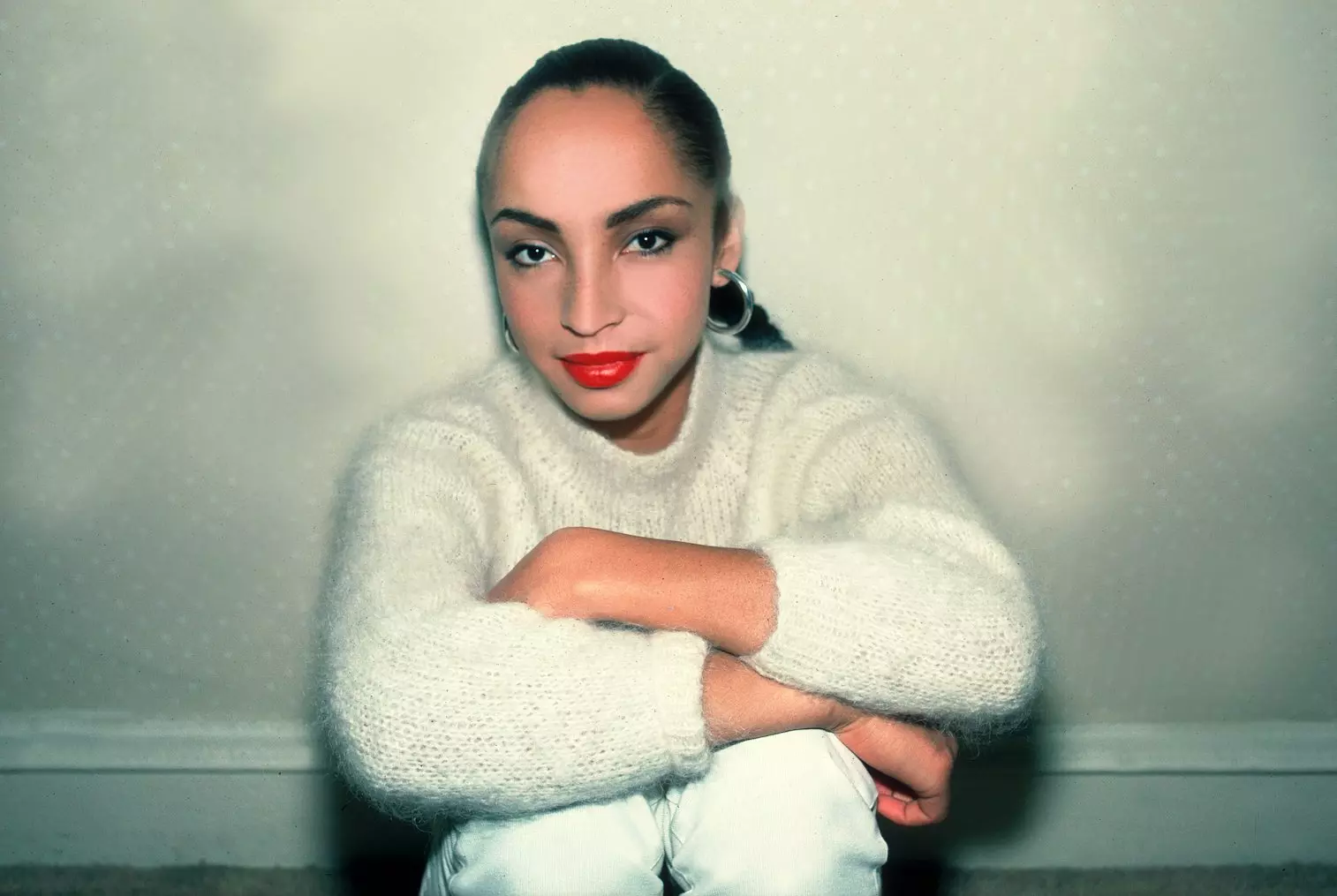
8 Ways Sade's 'Diamond Life' Album Redefined '80s Music & Influenced Culture
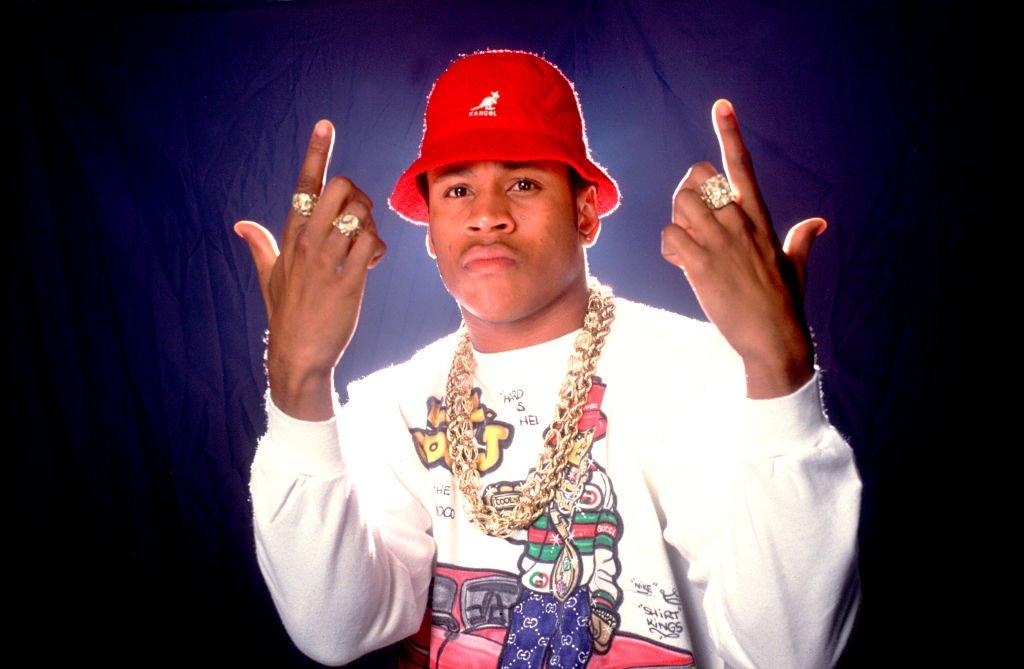
Credit: Paul Natkin/Getty Images
list
Celebrate 40 Years Of Def Jam With 15 Albums That Show Its Influence & Legacy
From the Beastie Boys' seminal 'License To Ill' and Jay-Z's 'Vol. 2… Hard Knock Life,' celebrate Def Jam with 15 of the label's essential albums.
This year marks the 40th anniversary of Def Jam Recordings, the New York label that made history in hip-hop, R&B, pop, and even thrash metal since its founding, and continues to do so today.
A label that began out of an NYU dorm room in 1984 quickly became an artistic (and business) powerhouse. Early acts like LL Cool J, the Beastie Boys, and Public Enemy were raw, adventurous, and risk-taking. Def Jam's roster opened new pathways in a still-young genre, seemingly every few months.
After that initial explosion, the label experienced a brief lull in the early 1990s when one label founder departed and the other expanded into fashion and comedy. Def Jam came roaring back beginning in 1994, and by 1998 the label was home to some of the most popular and influential artists in the game — including burgeoning megastars DMX and Jay-Z. To this day, Def Jam maintains a roster of both commercially successful and critically beloved artists in hip-hop, R&B, and pop.
To commemorate the anniversary of the label that gave us, well, pretty much everyone, here’s a list of 15 of Def Jam’s essential releases. While Def Jam brought audiences plenty of singles, EPs and remixes, this list primarily focuses on albums. Each project has a mix of artistic merit, popularity, influence and longevity, originality, and played a key role in the story of Def Jam as a whole. Think of it as a chronological run through the key albums that built one of the most lasting labels in modern music.
And finally: it must be said that in recent years, a dark shadow has begun to loom over Def Jam’s legacy. Label co-founder Russell Simmons been accused over the past seven years of numerous instances of sexual assault, dating back decades. In spite of these accusations, the label (in which Simmons hasn’t been involved for a quarter-century) remains on top, safeguarding its valuable archive while looking forward to another four decade run as fruitful as the first one.
T La Rock & Jazzy Jay - "It’s Yours" (1984)
The one single on this list is also the first piece of music ever released with the now-famous Def Jam logo. "It’s Yours" was a single produced by Def Jam co-founder Rick Rubin — his very first hip-hop production. Instrumentally, it was perhaps only comparable to Larry Smith and Def Jam co-founder Russell Simmons’ contemporaneous work with Run-D.M.C. Both "It’s Yours" and D.M.C.’s early work were severely stripped-down, consisting of a few drum sounds, an instrumental stab, and some scratches.
Lyrically, though, "It’s Yours" is worlds apart from "Sucker M.C.’s" — or pretty much anything else going on in hip-hop at the time. T La Rock, the brother of Treacherous Three member Special K, came from a family of educators, and he put every ounce of his erudition into the track. It begins, "Commentating, illustrating/ Description giving, adjective expert" and goes from there.
LL Cool J - 'Radio' (1985)
In the early 1980s, the state of the hip-hop album was very grim. Only a few existed, and they almost exclusively consisted of a few singles mixed with often-confusing filler. Two things changed that. First, Run-D.M.C.’s 1984 self-titled debut, which GRAMMY.com examined in depth a few months ago. Second was LL Cool J’s debut album Radio, the very first full-length album Def Jam ever released.
In many ways, Radio kicked off hip-hop’s Golden Age. The record shows LL, then still in his teens, as a versatile artist who can be boastful, funny, aggressive, lyrical. The album shows many different sides of his personality, and helped set the template for what a rap album could be.
Read more: 20 Iconic Hip-Hop Style Moments: From Run-D.M.C. To Runways
Beastie Boys - 'Licensed to Ill' (1986)
The Beasties would release more complex and enlightened albums than Licensed to Ill, and one of the members would eventually apologize for some of its lyrics. But there’s no denying that it was a smash hit. It was the first rap album to ever top the Billboard 200, got the group onstage with Madonna, and would eventually sell over 10 million copies.
Was some of that success due to their race? Sure. They were a credible group, signed to a hot rap label, at a time when it was still novel for white people to be performers in hip-hop. And yet, that’s not the whole story.
Licensed to Ill is a catchy, unique, energetic album, and the group members show undeniable chemistry. To this day, shout-filled, guitar-heavy anthems like "No Sleep till Brooklyn" and the ubiquitous "Fight for Your Right" can still get the party started.
Read more: The Beastie Boys Provide A License To Party
Public Enemy - 'It Takes a Nation of Millions to Hold Us Back' (1988)
There’s not too much you can say about this album that hasn’t already been said in the years of books, conferences, academic papers, and deluxe re-issues. It has ended up at or near the top of many all-time best lists. Its abrasive, collage-like approach to composition was never equalled (and, in light of current laws and practices around sampling, can never even be approached). The comic stylings of Flavor Flav bring just the right amount of levity to balance Chuck D’s takes on life-and-death issues.
Decades after its release, the album still sounds urgent. And sadly, in an America still roiled with tensions over race, incarceration, drugs, and the media, its concerns remain as relevant as ever.
Read more: 5 Things We Learned At "An Evening With Chuck D" At The GRAMMY Museum
Slick Rick - 'The Great Adventures of Slick Rick' (1988)
Slick Rick is the ultimate rap storyteller, and his debut album is the best example of his artistry. "I wrote them like an essay," Rick once said of creating the batch of songs that make up Great Adventures. He also compared it to doing stand-up. So you have exactly what those two reference points imply: stories that are well-constructed, and also frequently riotously funny.
Rick is the master of the telling detail (remember "Dave, the dope fiend shooting dope/ Who don’t know the meaning of water nor soap" from "Children’s Story"?), the humorous twist, the morality tale, the bedtime story, the character voice. His influence lives on in perhaps his most devoted protege, Ghostface Killah, as well as in any rapper who has tried to craft a song with a beginning, middle, and end.
Learn more: Essential Hip-Hop Releases From The 1980s: Slick Rick, RUN-D.M.C., De La Soul & More
Warren G - 'Regulate… G Funk Era'(1994)
A bit of an edge case here, as technically the record was put out by Violator Records and Rush Associated Labels, the latter of which was a sort of umbrella organization Def Jam ran in the mid-1990s. Many albums that could have made this list, including projects by Redman, Onyx, Domino, and Nice & Smooth, were released under the RAL banner. But Warren G’s debut, a giant hit in an era where Def Jam really needed it, became inextricably associated with the label, to the point where an article about the album on Universal Music’s website mentions Def Jam five times in the first two paragraphs.
Regulate is a pop-savvy take on the G-funk sound that was then ascendant. It was a huge success in a year that saw the introduction of tons of amazing rappers into the game. And Warren G being associated with Def Jam meant that the East Coast-centric label had expanded its geographic footprint.
Foxy Brown - 'Ill Na Na' (1996)
Def Jam wasn’t always a friendly place for female artists (despite many of the most important employees being women, including one-time president Nana Ashhurst). In fact, the label didn’t release a rap album by a woman until Nikki D’s Daddy’s Little Girl in 1991. So Foxy Brown’s impact — on Def Jam and on the rap world as a whole — cannot be overstated. Ill Na Na was an album that changed everything for female rappers. It had songs for the clubs, the block, and the radio. Foxy’s sexuality, versatility, and first-class rhyming would have an influence on countless rappers, most famously her number one fan Nicki Minaj, who has been effusively praising Foxy for more than a decade.
Read more: Ladies First: 10 Essential Albums By Female Rappers
DMX - 'It’s Dark and Hell Is Hot' (1998)
No less an authority than Nas referred to 1998 as "The year DMX took over the world." It’s Dark and Hell Is Hot is how he did it. The album set fire to Bad Boy’s so-called "shiny suit era" by embodying its polar opposite: a dark, grimy vision full of gothic synths; raspy, full-throated lyrics; and, sometimes, actual barks. Without DMX, there’s no NYC street rap return: no G-Unit mixtape run, no Diplomats.
The record is consistent and captivating from start to finish, and its thematic centerpiece comes, appropriately, about halfway through with "Damien," which reminds all of us that the most difficult battles we fight are the ones with ourselves.
Jay-Z - 'Vol. 2… Hard Knock Life' (1998)
Jay-Z has made more critically beloved albums than Vol. 2 (Reasonable Doubt and The Blueprint both fall in that category). He has made albums with bigger hits (The Blueprint 3 had a No. 1 hit with "Empire State of Mind"). But he has never made a more important LP.
Vol. 2 was the album that made Jay a superstar. Its Annie-sampling title track (produced by the late 45 King) sent him to the stratosphere — a process he actually documented on his follow-up album. But the record wasn’t just a commercial novelty. It showed Jay at the absolute top of his game: cocky, funny, and brilliant. Case in point: his novel approach to storytelling in "Coming of Age (Da Sequel)," where all the important action takes place in just a few seconds, inside the characters’ heads.
Read more: Songbook: How Jay-Z Created The 'Blueprint' For Rap's Greatest Of All Time
Ludacris - 'Word of Mouf' (2001)
Around the turn of the millennium, Def Jam had its sights set on conquering new territory. Specifically, the South. So they set up Def Jam South and hired Scarface to head it up. The entity’s biggest success came from an Atlanta DJ who went by Chris Luva Luva on the air, but began rapping as Ludacris.
Word of Mouf was Luda’s second album, but it was the one that really cemented his stardom with songs like "Rollout (My Business)," "Area Codes," and the immortal "Move Bitch" (the last of which has had an artist-approved second life as a protest chant). The album proved that the South was here to stay, and that Def Jam would have a role in determining its hip-hop future.
Learn more: A Guide To Southern Hip-Hop: Definitive Releases, Artists & Subgenres From The Dirty South
Scarface - 'The Fix' (2002)
Speaking of Scarface and Def Jam South, Face had no intention of dropping music while running the label. But, in his telling, Def Jam exec Lyor Cohen insisted on it, paying handsomely for the privilege.
"There were so many things working in my favor on that album," Scarface wrote in his memoir Diary of a Madman. "For the first time, I was working on an album for a label that believed in me 100 percent and didn’t want anything from me except for me to make the dopest album I could possibly make. And they went out of their way to make that possible."
Def Jam’s history of putting out classics inspired Face on The Fix, he writes in that book. And in the end, the album stands up there with any of them. It is one of only a small handful of rap records to earn a perfect five-mic rating from The Source, and it belongs in that rarified air with projects like Illmatic and Aquemini.
Kanye West - 'The College Dropout' (2004)
Yes, today Kanye West is the worst: a Hitler-loving, Trump-supporting, paranoid, antichoice, antisemite who stands accused of sexual harrassment. But two decades ago, the world met a Mr. West who at least seemed very different.
The College Dropout presented an artist who was already extremely well-known as a beatmaker. But Kanye’s carefully crafted persona as the bridge between mainstream rap and the underground — "First n— with a Benz and a backpack," as he put it — meant that he appealed to pretty much everyone. The College Dropout wasn't West at the top of his rap game, but it did show his skill at developing song concepts, at beats, and at creating an artistic vision so powerful, and so relatable, that it captivated an entire generation.
Cam’ron - 'Purple Haze' (2004)
It’s impossible to talk about Def Jam without discussing Roc-A-Fella. Jay-Z’s label hooked up with Def Jam in 1997, and had a years-long hot streak with artists like Kanye, Beanie Sigel, Freeway, the Young Gunz, and of course Cam’ron’s Diplomats crew — Cam, Juelz Santana, and the overall group all released projects there.
Purple Haze came at the very tail end of Roc-a-fella’s golden age. It has Cam at the absolute peak of his absurdist rhyming powers, keeping computers ‘puting and knocking out eight-syllable multis about Paris Hilton like it was nothing. During the Purple Haze era, it was Cam’s world, and we were all just lucky to be living in it.
Rihanna - 'Good Girl Gone Bad' (2007)
Rihanna’s first two projects were full of Caribbean sounds and ballads. But when her third album came along, she needed a change. Riri wanted to go "uptempo," and history shows that was the right choice. Good Girl Gone Bad began the singer’s transformation into the megastar we know today. It spawned five singles and two separate quickie tie-in albums (Good Girl Gone Bad: Reloaded and Good Girl Gone Bad: The Remixes).
"Umbrella" was the way forward. Rihanna had a No. 1 record prior, but she’d never made a sensation like this. The song (with a guest verse by then-Def Jam president Jay-Z) not only made it to the top slot, it also won a GRAMMY and was undeniably the song of the summer. The album also contained the sensation "Don’t Stop the Music," a track that kickstarted the EDM/pop hybrid that dominated the late aughts. Without Good Girl Gone Bad, it’s safe to say we’d be living in a very different, Fenty-less world.
Frank Ocean - 'Channel Orange' (2012)
One could fill a whole blurb about Channel Orange simply by quoting the extreme praise it received. "A singular achievement in popular culture." "Landed with the crash and curiousness of a meteor." Two days after its release, Pitchfork was already saying that it "feels like a classic."
And yet, somehow even that kind of acclaim doesn’t do the album justice. You really had to be there when it came out, when Frank looked into his soul and, in doing so, connected deeply with so many listeners
Read more: Frank Ocean Essentials: 10 Songs That Embody The Elusive Icon's R&B Genius
"Channel Orange is the most concentrated version of 2012 in 2012 so far," wrote Sasha Frere-Jones at the time, in one of the most dead-on statements about the album. It expressed the contradictions we all lived in. Its fragmentation mirrored the social media that was beginning to take over all of our lives. Ocean left bits of his biography scattered throughout the album, but they almost didn’t matter. He was speaking for all of us, in the way only great artists can.
A Guide To New York Hip-Hop: Unpacking The Sound Of Rap's Birthplace From The Bronx To Staten Island
PRIDE & Black Music Month: Celebrating LGBTQIA+ & Black Voices
Listen To GRAMMY.com's 2024 Pride Month Playlist Of Rising LGBTQIA+ Artists
9 New Pride Anthems For 2024: Sabrina Carpenter's "Espresso," Chappell Roan's "Casual" & More
What's The Future For Black Artists In Country Music? Breland, Reyna Roberts & More Sound Off
Why Beyoncé Is One Of The Most Influential Women In Music History | Run The World
9 Ways To Support Black Musicians & Creators Year-Round
How Beyoncé Is Honoring Black Music History With 'Cowboy Carter,' "Texas Hold Em," 'Renaissance' & More
The Evolution Of The Queer Anthem: From Judy Garland To Lady Gaga & Lil Nas X
15 LGBTQIA+ Artists Performing At 2024 Summer Festivals
50 Artists Who Changed Rap: Jay-Z, The Notorious B.I.G., Dr. Dre, Nicki Minaj, Kendrick Lamar, Eminem & More
Fight The Power: 11 Powerful Protest Songs Advocating For Racial Justice

How Rihanna Uses Her Superstardom To Champion Diversity | Black Sounds Beautiful

How Beyoncé Has Empowered The Black Community Across Her Music And Art | Black Sounds Beautiful
5 Women Essential To Rap: Cardi B, Lil' Kim, MC Lyte, Sylvia Robinson & Tierra Whack
Celebrate 40 Years Of Def Jam With 15 Albums That Show Its Influence & Legacy

Watch Frank Ocean Win Best Urban Contemporary Album At The 2013 GRAMMYs | GRAMMY Rewind
A Brief History Of Black Country Music: 11 Important Tracks From DeFord Bailey, Kane Brown & More
10 Women In African Hip-Hop You Should Know: SGaWD, Nadai Nakai, Sho Madjozi & More
10 Artists Shaping Contemporary Reggae: Samory I, Lila Iké, Iotosh & Others
The Rise Of The Queer Pop Star In The 2010s
How Sam Smith's 'In The Lonely Hour' Became An LGBTQIA+ Trailblazer
How Queer Country Artists Are Creating Space For Inclusive Stories In The Genre

How Jay-Z Became The Blueprint For Hip-Hop Success | Black Sounds Beautiful

How Kendrick Lamar Became A Rap Icon | Black Sounds Beautiful
Dyana Williams On Why Black Music Month Is Not Just A Celebration, But A Call For Respect
6 LGBTQIA+ Latinx Artists You Need To Know: María Becerra, Blue Rojo & More
7 LGBTQ+ Connections In The Beatles' Story
Breaking Down Normani's Journey To 'Dopamine': How Her Debut Album Showcases Resilience & Star Power
10 Alté Artists To Know: Odunsi (The Engine), TeeZee, Lady Donli & More

Celebrating Black Fashion At The GRAMMYs Throughout The Decades | Black Music Month
FLETCHER Is "F—ing Unhinged" & Proud Of It On 'In Search Of The Antidote'
For Laura Jane Grace, Record Cycles Can Be A 'Hole In My Head' — And She's OK With That
15 Essential Afrorock Songs: From The Funkees To Mdou Moctar
50 Years In, "The Wiz" Remains An Inspiration: How A New Recording Repaves The Yellow Brick Road
Why Macklemore & Ryan Lewis' "Same Love" Was One Of The 2010s' Most Important LGBTQ+ Anthems — And How It's Still Impactful 10 Years On
Songbook: The Complete Guide To The Albums, Visuals & Performances That Made Beyoncé A Cultural Force

Why Cardi B Is A Beacon Of Black Excellence | Black Sounds Beautiful
Queer Christian Artists Keep The Faith: How LGBTQ+ Musicians Are Redefining Praise Music
9 Revolutionary Rap Albums To Know: From Kendrick Lamar, Black Star, EarthGang & More
9 "RuPaul's Drag Race" Queens With Musical Second Acts: From Shea Couleé To Trixie Mattel & Willam
5 Black Artists Rewriting Country Music: Mickey Guyton, Kane Brown, Jimmie Allen, Brittney Spencer & Willie Jones
How 1994 Changed The Game For Hip-Hop

How Whitney Houston’s Groundbreaking Legacy Has Endured | Black Sounds Beautiful
LGBTQIA+-Owned Venues To Support Now

Celebrate The Genius Of Prince | Black Sounds Beautiful

Explore The Colorful, Inclusive World Of Sylvester's 'Step II' | For The Record
Black-Owned Music Venues To Support Now
5 Artists Fighting For Social Justice Today: Megan Thee Stallion, Noname, H.E.R., Jay-Z & Alicia Keys
Artists Who Define Afrofuturism In Music: Sun Ra, Flying Lotus, Janelle Monae, Shabaka Hutchings & More
5 Trans & Nonbinary Artists Reshaping Electronic Music: RUI HO, Kìzis, Octo Octa, Tygapaw & Ariel Zetina
From 'Shaft' To 'Waiting To Exhale': 5 Essential Black Film Soundtracks & Their Impact
5 Emerging Artists Pushing Electronic Music Forward: Moore Kismet, TSHA, Doechii & Others
5 Artists Essential to Contemporary Soca: Machel Montano, Patrice Roberts, Voice, Skinny Fabulous, Kes The Band

How Quincy Jones' Record-Setting, Multi-Faceted Career Shaped Black Music On A Global Scale | Black Sounds Beautiful
5 Black Composers Who Transformed Classical Music
Brooke Eden On Advancing LGBTQ+ Visibility In Country Music & Why She's "Got No Choice" But To Be Herself
Let Me Play The Answers: 8 Jazz Artists Honoring Black Geniuses
Women And Gender-Expansive Jazz Musicians Face Constant Indignities. This Mentorship Organization Is Tackling The Problem From All Angles.

Histories: From The Yard To The GRAMMYs, How HBCUs Have Impacted Music
How HBCU Marching Band Aristocrat Of Bands Made History At The 2023 GRAMMYs
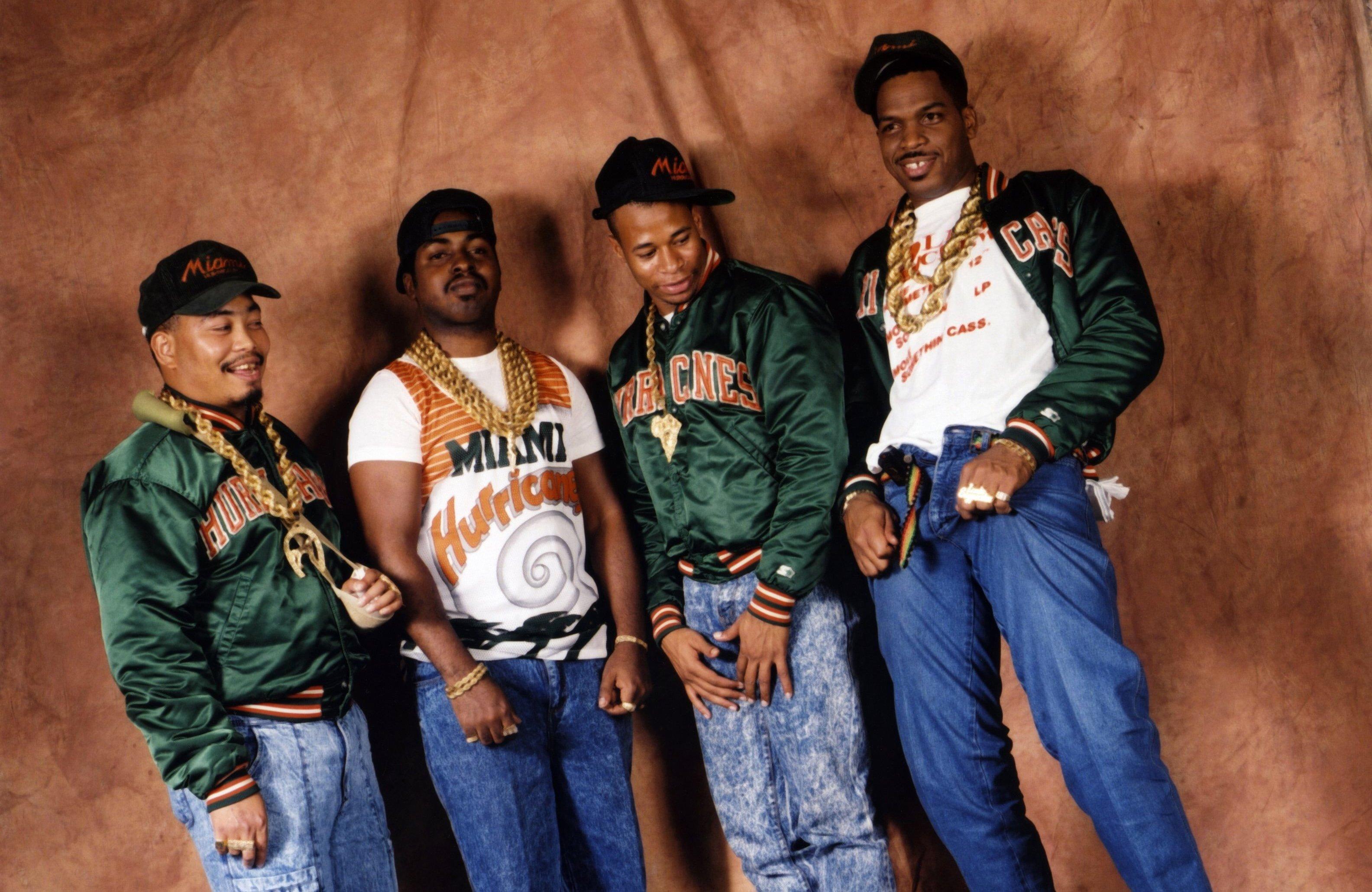
Photo: Michael Ochs Archives/Getty Images
feature
On This Day In Music: 2 Live Crew's 'As Nasty As They Wanna Be' Becomes First Album Declared Legally Obscene, Anticipates First Amendment Cases
Known for their raunchy take on hip-hop, 2 Live Crew made history when 'As Nasty As They Wanna Be' was declared legally obscene. Thirty-four years later, here's how they fought back and turned their battle into a landmark First Amendment case.
When 2 Live Crew released their third studio album, they never imagined it would lead to a mammoth of legal entanglements. In 1989, the Miami-based hip-hop group dropped As Nasty As They Wanna Be, a title that held true throughout the ensuing legal battle.
In an effort to put their music on the map and distinguish themselves in the rap game, amidst one of hip-hops finest eras, the album featured sexually explicit themes and graphic content, leading to extreme popularity within pop culture. However, this widespread attention wasn’t all in a good light.
In Broward County, Florida, Sheriff Nick Navarro took a stand against the group, endeavoring to prevent local record store owners from selling the provocative album. In defiance of this censorship, 2 Live Crew filed a lawsuit in federal court, seeking legal recourse to halt the sheriff’s crackdown, prevent restrictions on album sales and legally defend their work as non-obscene.
Through the court's ruling, they deemed the work legally obscene and prohibited retailers from selling the album in Florida’s Broward, Dade, and Palm Beach counties.
Following the ruling, Florida record store owner Charles Freeman was arrested for selling As Nasty As They Wanna Be and three 2 Live Crew members were also arrested for performing their explicit music live at a nightclub in Hollywood, Florida.
Challenging the initial ruling with tenacity, the group’s record label, Luke Records, founded by 2 Live Crew member Luther Campbell, brought the case in front of the Eleventh Circuit Court of Appeals.
In this legal battle, the Eleventh Circuit Court applied the Miller Test, a benchmark for obscenity set by the United States Supreme Court’s test in the 1973 Miller v. California case. To meet the standards of the test, the work being challenged must appeal to a prurient, or shameful interest in sex, depict sexual materials in a patently offensive way, and lack serious literary, artistic, political, or scientific value. Luke Records called four experts in their fields to the stand, while Navarro failed to provide concrete evidence that the album met the standards outlined by the Miller Test.
In the Court of Appeals, it was found that the album did not meet the standards of obscenity that were set forth in the Miller Test. Since As Nasty As They Wanna Be was a creative work of music, the court ruled that the album had artistic value and thus did not meet all the standards to be deemed as obscene.
"I’ve been listening to the album by 2 Live Crew. It’s not the best album that’s ever been made, but when I heard they banned it, I went out and bought it," said David Bowie during his 1990 tour in Philadelphia, stopping in the middle of his performance to defend the group. "Freedom of thought, freedom of speech — it’s one of the most important things we have."
Last week, 2 Live Crew member Brother Marquis passed away, prompting Campbell to take to Twitter and honor his friend and fellow member, stating, "We took on so many fights for the culture, made great music together, something I will never forget."
To this day, the case against 2 Live Crew serves as a legal standard for First Amendment Rights, upholding the boundaries between censorship and freedom of speech within music.
"They really set a legal precedent for hip-hop artists today to be able to create in the way that they choose to," says Kiana Fitzgerald in her book "Ode to Hip-Hop." In the book, she also cites contemporary examples of hip-hop artists who openly speak about sex in their discography, like Megan Thee Stallion, Cardi B, Lil Wayne, and others.
Through 2 Live Crew’s legal fight, they paved the way as trailblazers for hip-hop artists to be As Nasty As They Wanna Be — without facing speech-smothering legal repercussions.
Explore More History-Making Moments In Music

On This Day In Music: Spice Girls Release "Wannabe," Their Iconic Debut Single
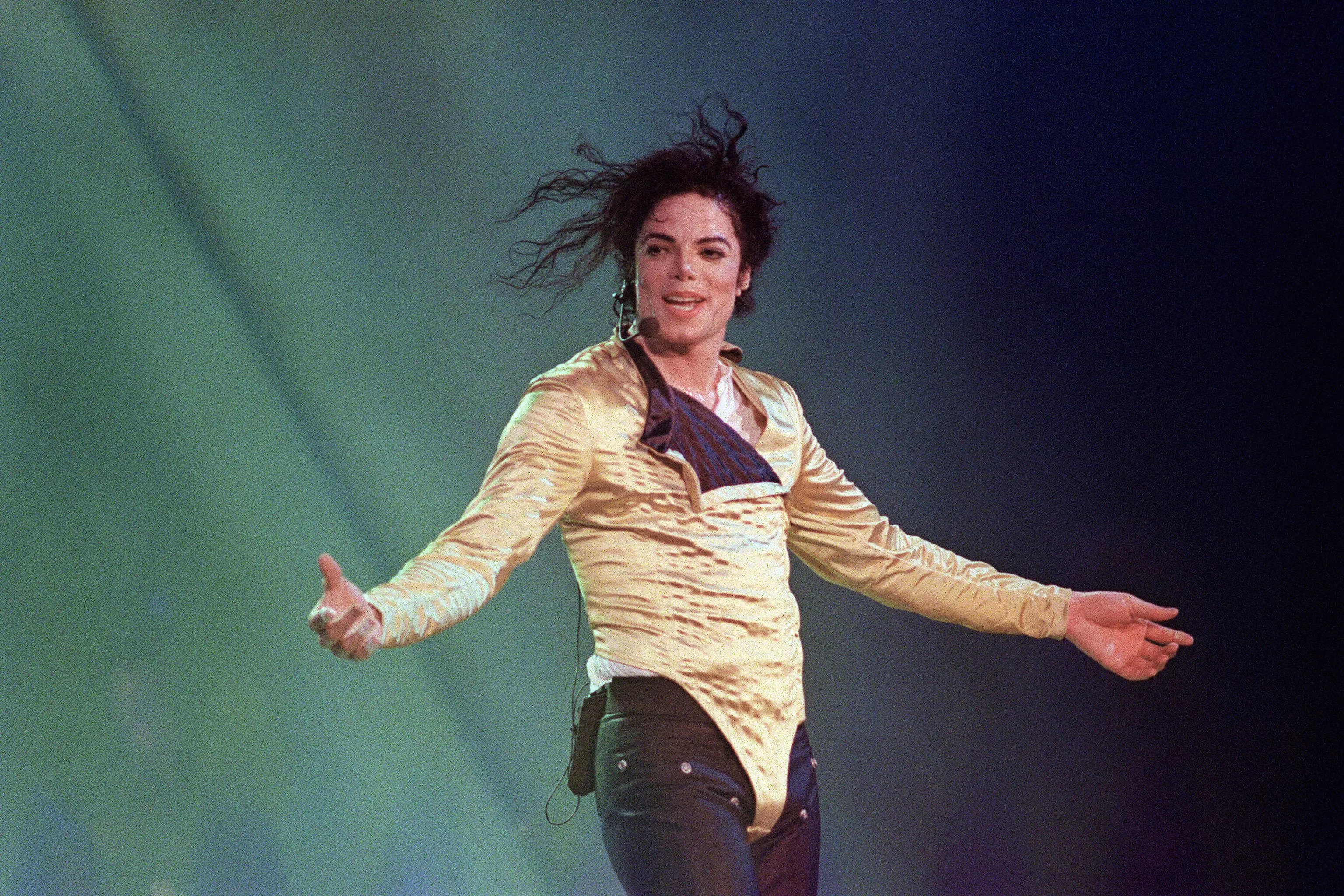
On This Day In Music: Michael Jackson Passes Away In Los Angeles At Age 50
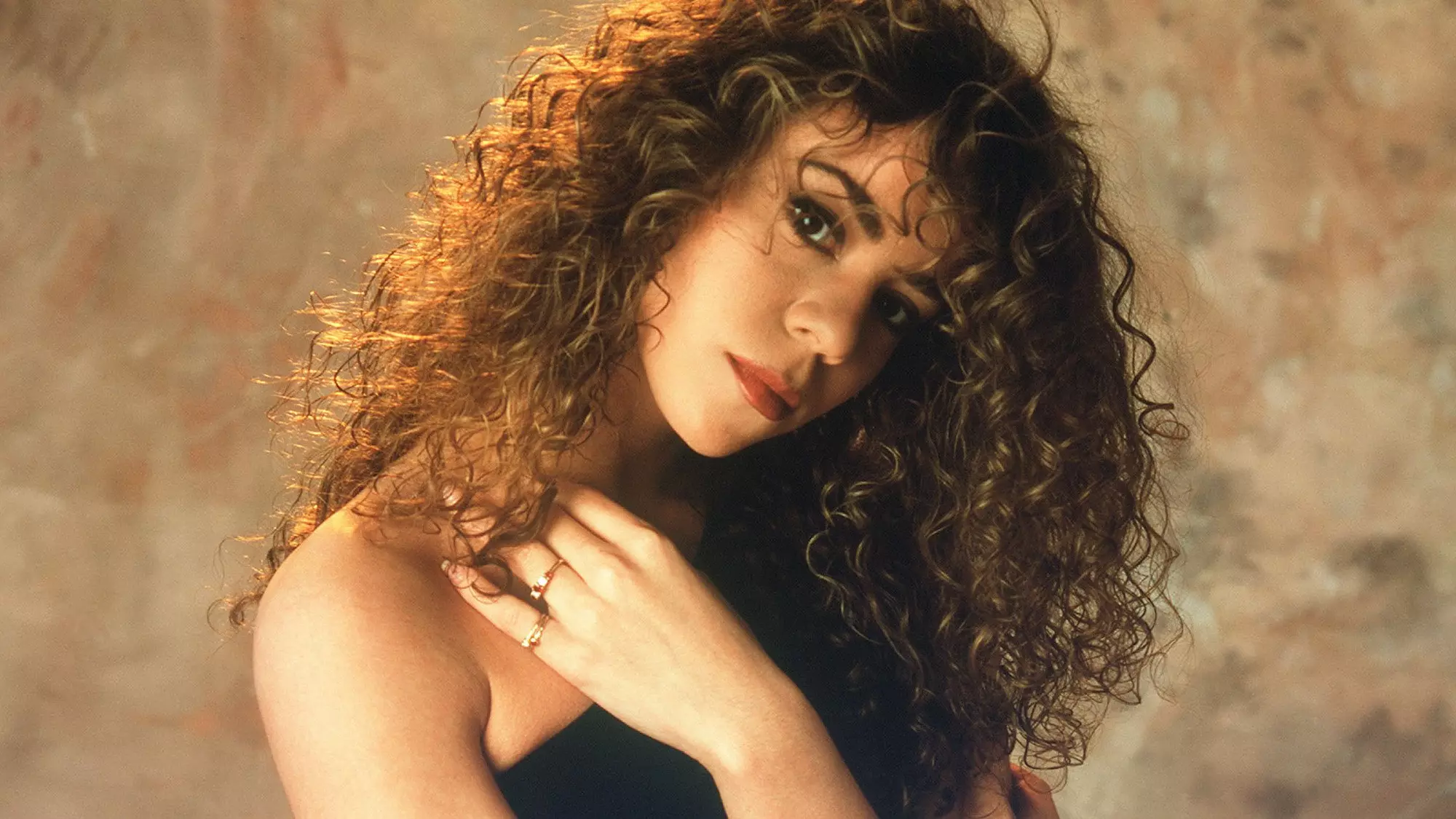
On This Day In Music: Mariah Carey Releases Her Self-Titled Debut Album
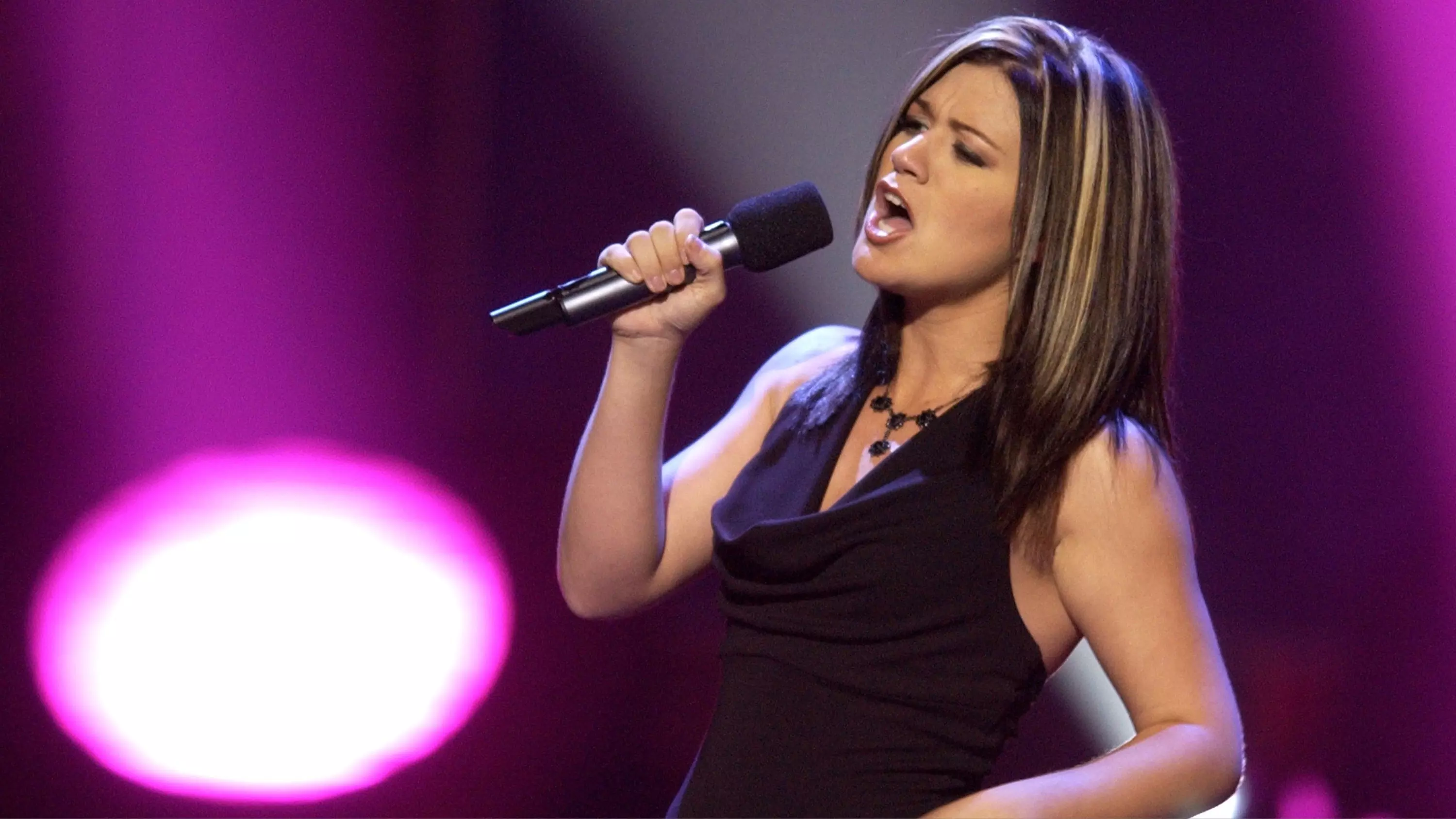
On This Day In Music: "American Idol" Premieres On Fox Network
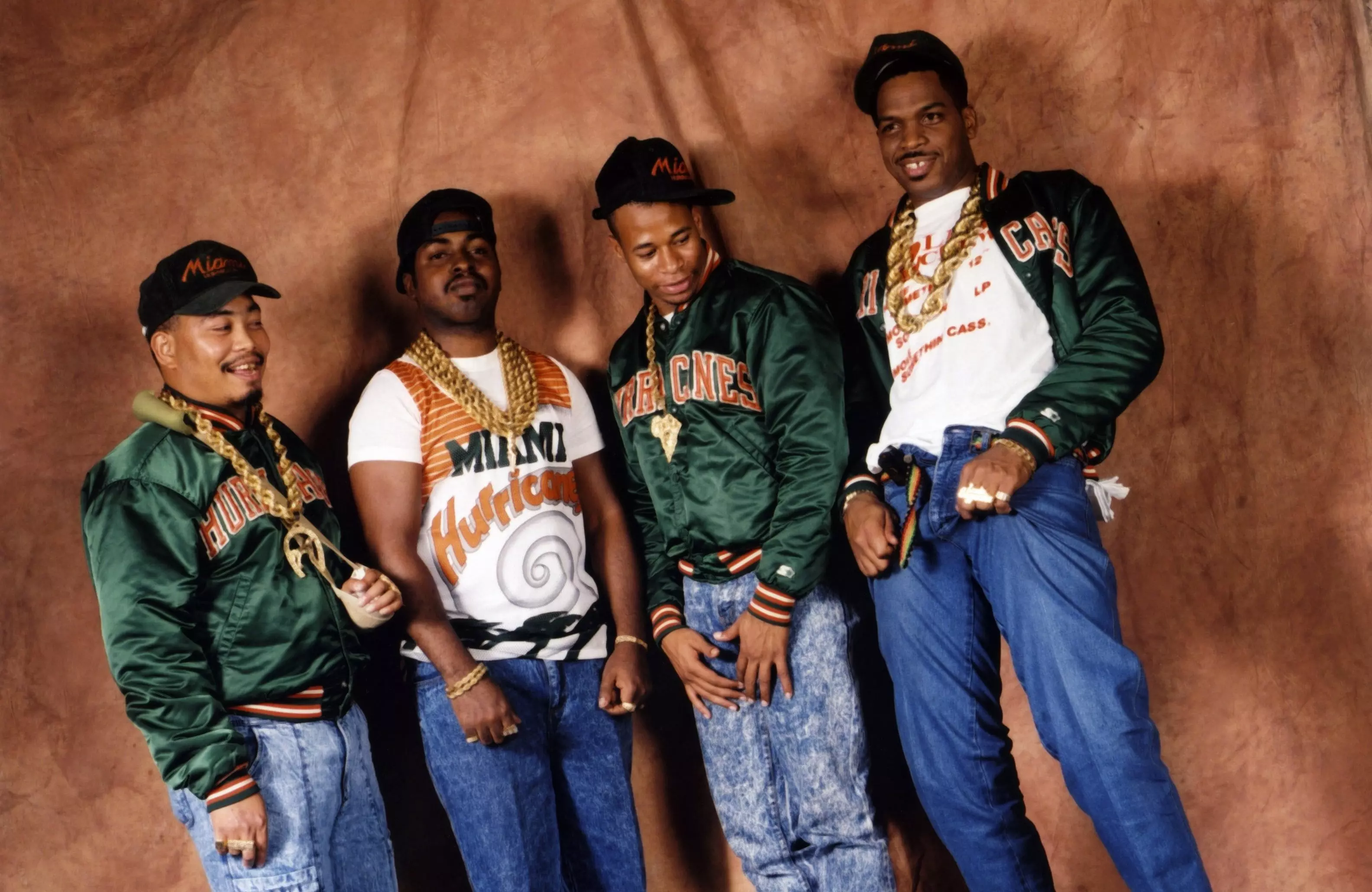
On This Day In Music: 2 Live Crew's 'As Nasty As They Wanna Be' Becomes First Album Declared Legally Obscene, Anticipates First Amendment Cases
